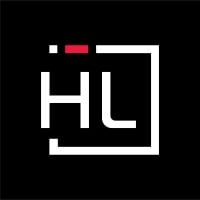Photonic Test Engineer
HyperLight is at forefront in commercialization of thin-film lithium niobate (TFLN) integrated photonics - a material and process technology that is enabling high-performance, scalable optical components across AI/datacom infrastructure, hyperscale computing, quantum computing, sensing, and beyond. Founded in 2018 and backed by leading venture capital, we’ve built a team and a platform focused on real-world mass deployment of TFLN photonics technology.
At the core of our work is the TFLN Chiplet™ platform — a modular, integrated architecture designed for scalability, manufacturability, and seamless integration into complex systems. It offers a rare combination of extraordinary performance and industrial readiness, enabling system developers across applications to deploy the technology fast and ready. We partner with our customers and suppliers from conceptualization, design, and prototyping phases, all the way through mass production to ensure smooth and rapid deployment of TFLN photonic technology.
We believe our platform is the key, in the golden age of integrated photonics industry, to empower humanity to the next level. We assembled a world class team covering engineering, business and operations. We believe in the power of integrity, innovation, collaboration and pragmatic solutions. Our diverse team thrives on challenges and is united by a shared commitment to excellence. We take pride in tackling complex challenges with curiosity, humility, and a deep sense of care for one another.
Our growing team is looking for Photonic Test Engineers who are highly motivated individuals and who enjoy problem solving. These positions will focus on measurement, and test and analysis on wafer level and device level.
Join us to make a real-world impact in a fast-paced, collaborative and high-growth environment.
Responsibilities:
- Define and implement both die-level and wafer-level test solutions in collaboration with design and product teams.
- Develop production test solutions for PICs components to ensure manufacturability and scalability.
- Develop and execute design verification tests, analyze results, and provide feedback to improve device performance.
- Optimize and standardize test and analysis methodologies to improve repeatability and accuracy.
- Bring-up, manage, and operate automated wafer-level test (WLT) probers for PICs devices, including passive and active optical and RF components.
- Perform routine setup calibrations and ensure quality control in test processes.
- Identify and mitigate test challenges, ensuring execution of large-scale technical projects in a timely and efficient manner.
- Take ownership to collect high quality measurement data and prepare quality measurement reports for optical, electrical and electro-optical measurements.
- Analyze test results, Gauge Repeatability and Reproducibility analysis (gR&R), troubleshoot issues, and recommend improvements.
- Document test procedures, results, and technical reports to maintain a comprehensive knowledge base.
HyperLight is an equal opportunity employer. All applicants will be considered for employment without attention to race, color, religion, sex, sexual orientation, gender identity, national origin, veteran or disability status.
Requirements
- Bachelor's or higher degrees in Electrical Engineering, Photonics, Physics, or a related field.
- 2 – 5+ years of experience in testing and characterization of photonic or semiconductor devices.
- Good technical understanding and ability to perform optical, RF or electro-optic measurements.
- Experience programming in Python and interest in working on test automation and interfacing.
- Strong analytical and problem-solving skills. Attention to details, diligent note taking and precise report writing.
- Knowledge of semiconductor fabrication processes and photonics principles is a plus.
- Ability to work in a team environment and participate in cross-functional activities.
- Fluent in English and Mandarin is a must
- Experience in interfacing/managing foundries or OSAT is a plus
Benefits
- Competitive market-based compensation

